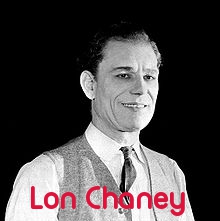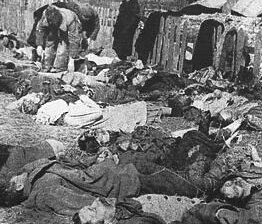Daily History Lesson: August 26th
“That men do not learn very much from the lessons of history is the most important of all the lessons that history has to teach.”
~Aldous Huxley
1930 – Actor Lon Chaney, best known for his starring roles in such silent horror films as The Hunchback of Notre Dame and The Phantom of The Opera, died at the age of a throat hemorrhage at the age of 47. His ability to transform himself using makeup techniques he developed himself earned him the nickname “The Man of a Thousand Faces.”
1942 – The Reich protection police of Nazi Germany started driving Jews out of their houses in Chortkiv, western Ukraine. They divided their prisoners into groups of 120, packed them into freight cars and deported 2000 to Belzec extermination camp. Five hundred of the sick and children didn’t make the long journey. They were murdered on the spot.
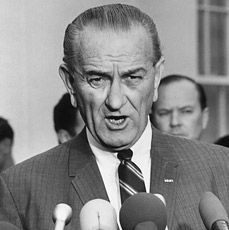
1964 – On the day before he was to accept the Democratic nomination for his re-election, President Lyndon Johnson made – for the first of several times during the campaign – the following statement, designed to reassure voters about their concern the U.S. was going to increase their presence in South Vietnam…
“We are not about to send American boys 9 or 10,000 miles away from home to do what Asian boys ought to be doing for themselves.”
At the time of Johnson’s promise, there were 23,000 American “advisors” in South Vietnam. But in March 1965 – just months after his landslide victory over Barry Goldwater – Johnson’s vote-seeking guarantee went out the window. Prompted by the realization that those “Asian boys” were losing the Vietnam War, Johnson did send those “American boys 9 or 10,000 miles away from home.” By the end of the year, there were 184,000 U.S. ground troops in South Vietnam, and by the end of 1966, there were 385,000. In 1967 that number increased to 485,000, and by 1968 – the year Johnson declined to run for re-election again – U.S. ground troops in South Vietnam totaled 536,100.
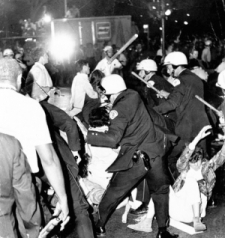
1968 – As the Democratic National Convention began in Chicago, thousands of antiwar demonstrators take to Chicago’s streets to protest the Vietnam War and its support by the top Democratic presidential candidate, Vice President Hubert Humphrey. During the four-day convention, the most violent in U.S. history, police and National Guardsmen clashed with protesters and hundreds of people, including innocent bystanders, were beaten by the Chicago police.
In the convention’s aftermath, a federal commission investigating the convention described one of the confrontations as a “police riot” and blamed Chicago Mayor Richard Daley for inciting his police to violence.
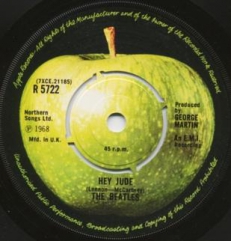
1968 – The Beatles released ‘Hey Jude’ / ‘Revolution’. It was the first single from their new record label, Apple Records. It spent nine weeks at #1 in the United States, and has sold over 9 million copies.
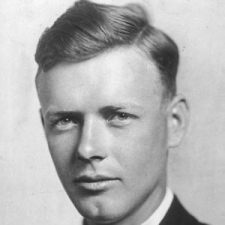
1974 – Aviation pioneer Charles Lindbergh died at the age of 72. At the age of 25, Lindbergh had emerged from the virtual obscurity of a U.S. Air Mail pilot to instantaneous world fame as the result of his solo nonstop flight from Long Island, New York, Paris, France in his single-engine Spirit of St. Louis.
His life was marred by the kidnapping and murder of his infant son in 1932,and later his outspoken (and very unpopular) belief that the survival of the white race was more important than the survival of democracy in Europe: “We can have peace and security only so long as we band together to preserve that most priceless possession, our inheritance of European blood, only so long as we guard ourselves against attack by foreign armies and dilution by foreign races.”
Lindbergh’s speeches and writings reflected his adoption of Nazi views on race and religion. He wrote in his memoirs that all of the Germans he met thought the country would be better off without its Jews.
In a speech (“Who Are the War Agitators?”) at an America First rally at the Des Moines Coliseum on September 11, 1941, Lindbergh claimed the three groups “pressing this country toward war are the British, the Jewish, and the Roosevelt Administration.”
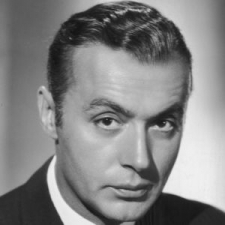
1978 – Two days after his wife’s death from cancer, and two days before his own 79th birthday, actor Charles Boyer committed suicide with an overdose of Seconal. He received four nominations for Best Actor Academy Awards: Conquest, Algiers, Gaslight, and Fanny.
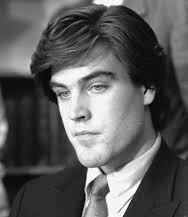
1986 – In the so-called “Preppie Killer” murder case, 18-year-old Jennifer Levin was found strangled in New York’s Central Park. Robert Chambers later pleaded guilty to manslaughter and served 15 years in prison. He didn’t learn much from his days behind bars. In 2008, he was convicted of selling drugs and sentenced to 19 years in prison.
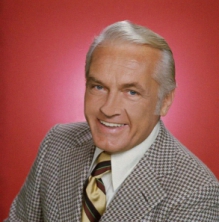
1986 – Actor Ted Knight (starred in Caddyshack and Too Close For Comfort, but best known for playing the role of Ted Baxter on The Mary Tyler Moore Show) died of Colorectal cancer at the age of 62.
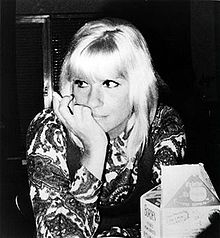
2009 – Ellie Greenwich (co-writer of ‘Be My Baby’, ‘I Can Hear Music’, ‘Leader Of The Pack’, ‘Then He Kissed Me’, ‘Chapel Of Love’, ‘Da Doo Ron Ron’, ‘Hanky Panky’, ‘Do Wah Diddy Diddy’, ‘River Deep, Mountain High’, Baby, I Love You’ and many others) died of a heart attack at the age of 68.
Compiled by Ray Lemire ©2016 RayLemire.com. All Rights Reserved.
You may not reproduce, record, publish, republish, post, transmit, publicly display, publicly exhibit or distribute any articles or photographs on RayLemire.com without obtaining the express written consent of the Operator.
